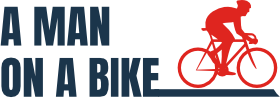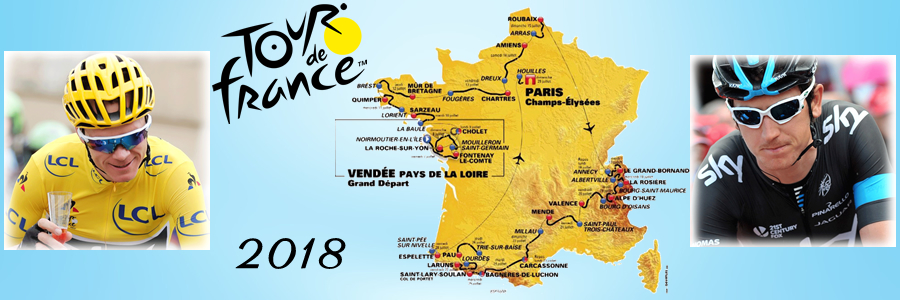The 2018 Tour de France was the 105th edition of the Tour de France, one of cycling’s three Grand Tours.
The 3,351 km (2,082 ml) long race consisted of 21 stages, starting on 7 July in Noirmoutier-en-l’Île, in western France, and finishing on 29 July with the Champs-Élysées stage in Paris.
The 2018 edition of the Tour de France consisted of 22 teams.
The race was the 25th of the 37 events in the UCI World Tour, and all of its eighteen UCI World Teams were entitled, and obliged, to enter the race. On 6 January 2018, organisers of the Tour, the Amaury Sport Organisation (ASO), announced the four second-tier UCI Professional Continental teams that received a wildcard invitation to participate in the event.
The four teams were Cofidis, Direct Énergie, Fortuneo–Samsic, from France, and Belgium’s Wanty–Groupe Gobert, all of which have participated in the race before.
New rules by the cycling’s governing body, the Union Cycliste Internationale (UCI), reduced the number of riders per team for Grand Tours from 9 to 8, resulting in a start list total of 176, instead of the usual 198, which had been the number of starters since 2010.
Of these, 35 riders were competing in their first Tour de France.
The riders came from 30 countries. Seven countries had more than 10 riders in the race: France (35), Belgium (19), the Netherlands (13), Italy (13), Australia (11), Germany (11) and Spain (11).
The average age of riders in the race was just over 29 years old; ranging from the 21-year-old Egan Bernal (Team Sky) to the 40-year-old Franco Pellizotti (Bahrain–Merida).
The favourite for the general classification (Yellow Jersey) was Chris Froome of Team Sky. Froome had won the 2013, 2015, 2016 and 2017 editions of the Tour, and was also the current defending champion at both other Grand Tours, the Vuelta a España and the Giro d’Italia.
However, Froome’s participation was in doubt due to an ongoing anti-doping investigation that began in December 2017, when it was announced that he had returned a urine sample taken at the Vuelta (which had taken place two months earlier) which contained twice his allowed amount of the asthma drug Salbutamol.
Froome was cleared by the UCI on 2 July, five days before the start of the Tour, with a press statement reading that the authorities had found sufficient evidence “that Mr Froome’s sample results do not constitute an AAF”. He was thereafter cleared to start the Tour by the ASO as well.
The closest rivals of Froome were thought to be Romain Bardet (AG2R La Mondiale), Tom Dumoulin (Team Sunweb) and Mikel Landa (Movistar Team),
There were 21 stages in the race, covering a total distance of 3,351 km (2,082 mls). There were two time trial events, Stage three’s 35.5 km (22 mls) Team Time Trial and Stage twenty’s 31 km (19 mls) individual time trial.
Of the remaining nineteen stages, eight were officially classified as flat, five as hilly and six as mountainous. The longest mass-start stage was stage seven, at 231 km (144 mls), and the shortest was stage seventeen, at 65 km (40 mls).
The overall general classification was won by Geraint Thomas of Team Sky in 83hrs 17mins 13secs.
Tom Dumoulin (Team Sunweb) placed second (+1min 51sec), with Thomas’s teammate and four-time Tour winner Chris Froome coming third (+2min 24sec).
Peter Sagan (Bora-Hansgrohe) took the Points Classification (Green Jersey) and Julian Alaphilippe (Quick-Step Floors) the Mountains Classification (Polka Dot Jersey).
Of the 176 starters, 145 managed to cross the finish line in Paris.
A good race and a worthy winner, with Geraint Thomas taking 2 of the Mountain Stages.

